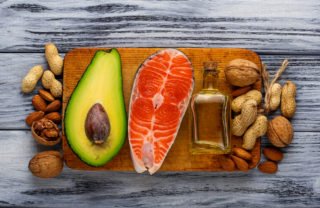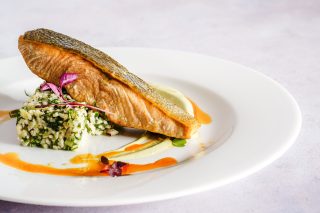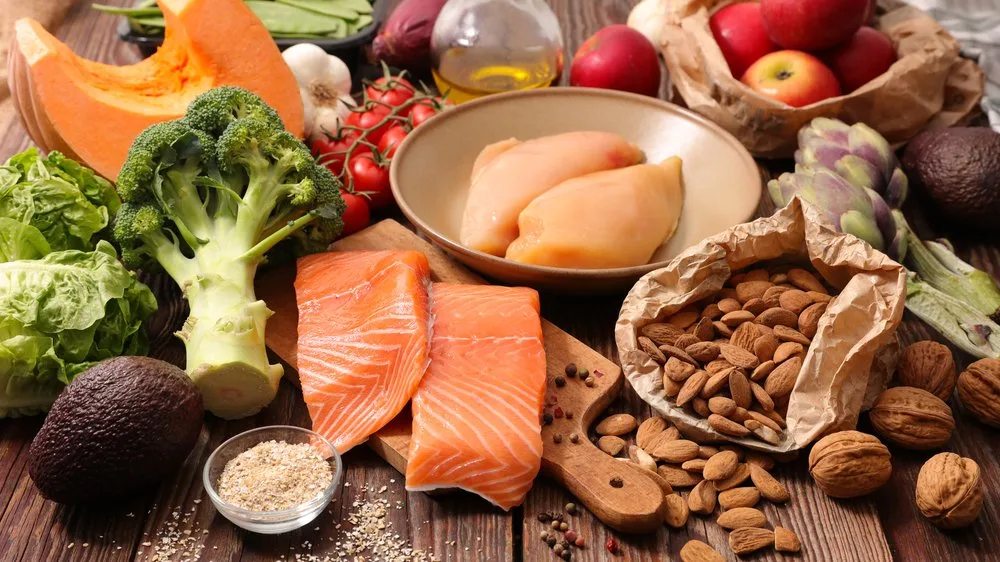
BALANCED DIET I LONGEVITY
Essentially, a pescatarian diet is a plant-based diet that includes fish and seafood as the main source of protein. It’s well known that a plant-based diet has huge benefits when it comes to health and wellness. The other major pro? It’s also great for the planet. However, many people struggle to change from an omnivorous diet to a purely plant-based one. The answer to this problem could come in the form of a pescatarian diet.
If, as a meat-eater, you have previously included fish and seafood in your diet, they could help to make the transition to a plant-based diet much more painless. This does not mean that all pescatarians are going to transition to vegetarianism or veganism. Many people who eat a pescatarian diet maintain the addition of fish and other seafood in their diets.
SO WHY SHOULD I DO THIS?
Well, often people choose to become pescatarians for ethical reasons. According to Healthline, reasons people choose not to eat meat include: opposing slaughter, opposing inhumane factory practices, opposing the poor labor conditions of workers, and for humanitarian reasons. According to the United Nations (UN), “raising livestock contributes to 15% of all human-made carbon emissions”. In contrast, the production of fish and seafood has a much lower carbon footprint. In a study from 2014, it was calculated that a pescatarian diet cased “46% less greenhouse gas emissions than the diets of people who ate at least a serving of meat a day”.
It’s important to remember that whilst land animals are a major source of pollution and have a high environmental impact, overfishing can also cause problems. So it’s vital that, if you do opt for a pescatarian diet, you choose your fish wisely and ethically.
Here are some websites which will help you find out whether the fish you’re about to eat is endangered before you order or buy it:
South Africa: http://wwfsassi.co.za/sassi-list/
UK: https://www.mcsuk.org/goodfishguide/search
USA: https://www.seafoodwatch.org
POSITIVES
What are the positives of a pescatarian diet? One of the major positives of a pescatarian diet is that it allows for more choice than a purely vegetarian diet. When people eliminate meat, it can be difficult to find anything to eat at restaurants, especially in the beginning. Fish is also a fantastic source of protein. Fish contains complete proteins which means you don’t need more than one protein source in order to get the nutrients you need.
There is also the obvious benefit of being better for the environment as well. Researchers have also found that overall that “vegetarian, semi-vegetarian, and pesco-vegetarian” diets are “are “mostly better in terms of nutrient quality” than an omnivorous diet. Vegetarian and pescatarian diets are also associated with lower BMI’s (body mass index) and even a reduced risk of type 2 diabetes.
Fish is also low in saturated fat but rich in important nutrients such as omega-3. Any fish that have a high omega-3 content can help to “boost heart health, reduce symptoms of rheumatoid arthritis, and may even help to improve brain and eye health”.
NEGATIVES

Photo by Sebastian Coman Photography from Pexels
What are the negative aspects of a pescatarian diet? One of the major negatives is cost. Buying fresh fruit, vegetables and fish can be very costly. Of course, there is the option of frozen fish, fruit, or vegetables. Just make sure that your frozen items are free from added sugar or salt.
Fish can also be high in mercury, tuna is well known for being a fish that has a high mercury content. This can be monitored through the use of the websites mentioned above: SASSI, MCSUK, and Seafood Watch. These websites also show mercury content in fish and what fish should be limited. Fish is low in vitamin B-12 but this vitamin can be found in “shellfish, eggs, milk and dairy products”. So no worries, as long as you include one of these. You could also take a B-12 supplement if you don’t want to or can’t eat shellfish, eggs, or dairy.
TIPS AND TRICKS TO HELP YOU ON THE WAY TO A PESCATARIAN LIFESTYLE
Emily Shwake from ‘The Kitchn’ has a few helpful tips for those who are planning to switch to a pescatarian diet:
- Take things slowly, we all need to work at our own pace. It’s a big change, take your time
- Don’t feel as though you’ve failed if you can’t manage to go ‘cold turkey’
- Shop strategically to save money where you can
- Try some new recipes but remember that you don’t have to go completely out fo your comfort zone
- Remember that variety is the spice of life, shake things up a bit so you don’t get bored.
- Lastly, do what feels right for you, if you feel that an aspect of the diet isn’t working for you, change things up.
Essentially, eating a pescatarian diet is better for the environment and better for you. It’s always worth giving it a try and if it doesn’t work for you, you can always switch back or add some meat back into your diet.
**Please consult your doctor before making any major diet changes





![women [longevity live]](https://longevitylive.com/wp-content/uploads/2020/01/photo-of-women-walking-down-the-street-1116984-100x100.jpg)









